Download a free Be Plant Wise guide here
Some of the plants in your garden or pond can become invasive non-native species if they spread beyond your garden border. Invasive non-native plants cause harm to native wildlife and the environment, the economy, and even our health and the way we live. Find out more about their impacts.
You can help to protect the environment by following three simple steps to Be Plant Wise:

Know what you grow
Choose the right plants for your garden, pond and water features. A free guide to non-invasive alternatives is available to help you.
- Research plants before you buy them to make sure they are suitable for your needs, easy to dispose of, and won’t be invasive. Garden centre staff may be able to help, and if you're shopping online, use these resources to help you choose plants.
- Consider native plants, or choose non-invasive alternatives.
- Never take plants from the wild or bring plants, seeds, flowers, fruit or vegetables home from abroad, it can be illegal and may damage the environment. Don't risk it!
- Be careful when you share plants with friends and family, as you may accidentally pass on invasive plants, pests, or plant diseases.
- Did you know that it's against the law to share or sell some garden and pond plants? Read more on restrictions around non-native plants.
- Let local native plants flourish in the wild- we don’t always know which plants will be a problem so it's really important not to plant or dispose of any garden plants in the wild, even those that are native to other parts of Britain. Aquatic plants can be particularly invasive if they are introduced to a river, stream or lake. If you'd like to get involved in restoring local habitats look for an existing conservation project working to do this.
- Position new plants away from the edge of your garden so they can’t 'jump the fence' and spread into the wild, and pull out any runners and seedlings that start to spread further.
- If you have an invasive plant in your garden, remove seed heads and pods regularly and dispose of them carefully to stop them spreading on the wind.
- Help prevent future invasions, report plants which are spreading in your garden and proving hard to control.
- Wash garden tools regularly if you use them in other people’s gardens or for voluntary work in the countryside to keep them free of plant fragments, seeds or plant diseases.

Compost with care
Dispose of your unwanted plants, roots, weeds, seeds, and seed heads responsibly. Find out which species can't be composted and how to dispose of them safely.
- Make sure nothing you remove from your garden, pond, or aquarium gets into the wild, you could be breaking the law if it does. Fly tipping green waste can have serious irreversible environmental impacts. Read more on restrictions around non-native plants.
- Compost your plants! Home composting is environmentally-friendly and the compost will benefit your garden. Making your own helps you to go peat free. Check first whether you have any invasive plants that can't be composted and view tips on composting. Keep an eye out for regrowth in your compost heap and make sure it is broken down properly before using it in your garden.
- Alternatively, most garden plants can go in your council garden waste bin if you have one, but be aware that some invasive plants have extra controls around their disposal.
- If you can't compost at home or have a plant that you can’t put in your council garden waste bin you could dry plants and burn them, but check that your local council will allow bonfires.
Download or order free Be Plant Wise materials to refer back to in future. If you have an invasive plant causing problems in your garden or pond, don’t panic! Read more on managing invasive plants in your garden.
Extra tips for pond and aquarium plants
- When you buy a new plant remove the surface layer of compost and wash the plant in a bucket, before you position it in your pond to remove any seeds or unwanted plant fragments.
- Use this and any other waste water from your pond or aquarium on your lawn or to water plants in your garden, away from waterbodies (or drains that flow into them) as it could contain fragments of invasive plants.
- If your pond is near to a wetland or waterbody avoid using any plants which aren’t locally native and if any invasive plants appear remove them before they spread into the wild.
- Use unwanted aquatic plants in your garden as mulch, keeping this away from waterbodies or drains.
- Protect your pond life by leaving any plants you’ve removed on the edge of the pond to drain for a few hours before disposing of them to allow any wildlife to return to the water.
- Pond animals and fish should never be released into the wild either. They may not survive, and if they do they could harm native wildlife.

